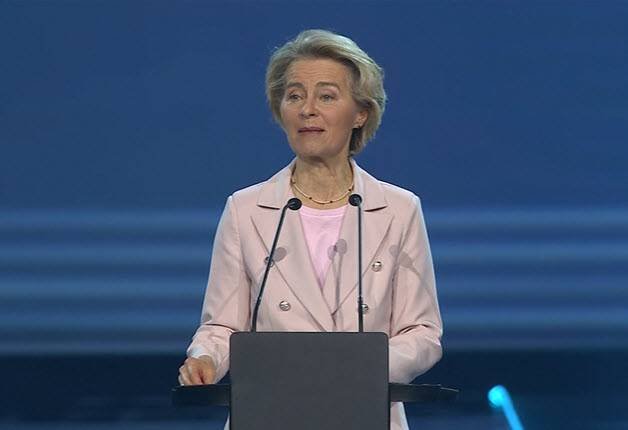The Baltic States Officially Disconnect from Russia’s Electricity Grid
The Baltic states of Estonia, Latvia, and Lithuania have successfully completed a historic switch from Russia’s electricity grid to the EU’s system, marking a significant milestone in their quest for energy independence. The move comes amidst heightened security concerns following the suspected sabotage of several subsea cables and pipelines in the region.
European Commission President Ursula von der Leyen lauded the transition as a symbol of a new era of freedom for the Baltic region. In a ceremony held in Vilnius, von der Leyen, along with the leaders of the three countries and the Polish president, emphasized the importance of breaking free from the Soviet-era ties that had long bound the Baltic states to their former imperial overlord.
The decision to disconnect from Russia’s grid has been years in the making, gaining momentum in the wake of Moscow’s annexation of Crimea in 2014 and its subsequent actions in Ukraine. The switch is designed to not only integrate the Baltic nations more closely with the European Union but also to enhance the region’s energy security.
President von der Leyen highlighted the significance of the move, stating, “This is freedom, freedom from threats, freedom from blackmail.” She also noted that the broader European continent is gradually reducing its reliance on Russian natural gas, further diminishing Moscow’s leverage over the region.
Ukrainian President Volodymyr Zelenskiy echoed these sentiments, emphasizing that his country had taken a similar step in 2022 and commending the Baltic states for following suit. Zelenskiy added, “Moscow will no longer be able to use energy as a weapon against the Baltic states.”
Following the disconnection from the IPS/UPS network, which was initially established by the Soviet Union and is now operated by Russia, the Baltic nations physically cut cross-border high-voltage transmission lines in eastern Latvia, near the Russian border. The symbolic act was met with enthusiasm from onlookers, who received pieces of wire as keepsakes.
Heightened Security Concerns
The Baltic Sea region is currently on high alert following a series of outages affecting power cables, telecom infrastructure, and gas pipelines connecting the Baltics to Sweden or Finland. These incidents, believed to be the result of ships dragging anchors along the seabed, occurred in the aftermath of Russia’s invasion of Ukraine.
Both Poland and the Baltic states have deployed naval assets, elite police units, and helicopters to monitor the area in response to the disruptions. The damage to critical infrastructure has raised concerns about potential energy price spikes in the Baltics, reminiscent of the aftermath of the Ukrainian conflict.
Despite the challenges, the Baltic states remain steadfast in their commitment to energy independence. By severing their ties to Russia’s grid, Estonia, Latvia, and Lithuania are not only enhancing their own security but also sending a powerful message about their sovereignty and resilience in the face of external threats.
As the region transitions to a new era of energy independence, the Baltic states are poised to chart their own course, free from the constraints of their Soviet past. The successful disconnection from Russia’s grid marks a significant step towards a more secure and sustainable energy future for the Baltic region.

